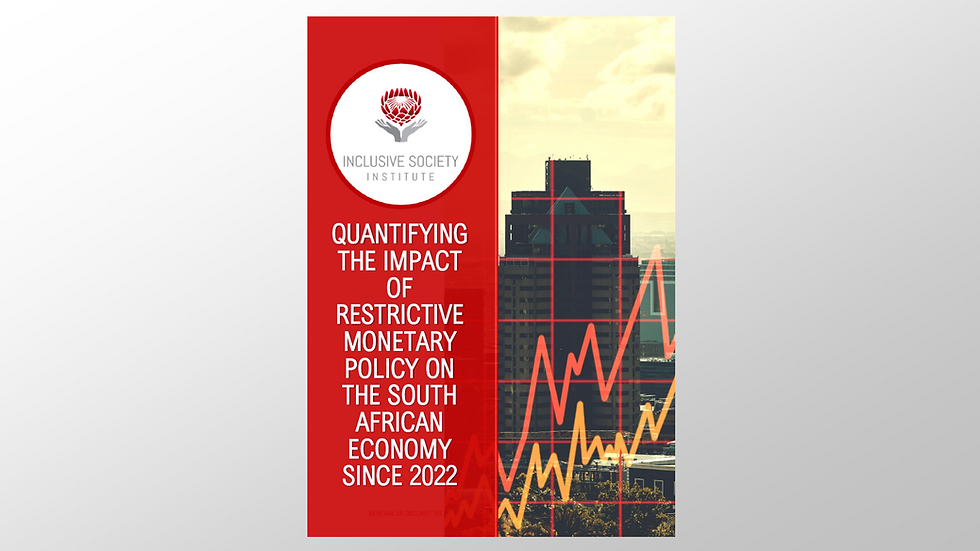Civil Society agrees on next steps to change electoral system before 2024 elections
- Inclusive Society Institute

- May 29, 2022
- 2 min read
Updated: Jun 14, 2022

27 May, 2022: A large cohort of civil society organisations held a roundtable discussion to deliberate and decide on a collective approach to the Electoral Amendment Bill currently before Parliament.
This gathering took place just two weeks ahead of the 11 June 2022 deadline set by the Constitutional Court for Parliament to change the country’s electoral laws to be in line with the Constitution. Following the New Nation Movement judgment of June 2020, Parliament was ordered to change our unconstitutional electoral laws to allow for South Africans – who are not members of any political party – to run for public office and serve their country.
OSA, OUTA, CASAC, Democracy Works, the Independent Candidate Association, the Inclusive Society Institute, the FW De Klerk Foundation, Africa School of Governance, Raising Righteous Rulers, Citizens Parliament, the Helen Suzman Foundation, Devoted Citizen and My Vote Counts agreed on several matters.
Firstly, that Parliament has not met its obligations as set out by the Constitutional Court. All parties agree that the proposed Bill in its current form is unconstitutional as it stands. They agreed that a full overhaul of the electoral system with a constituency-based system at its core is what Parliament is required to undertake and not the light touch approach to amending the Electoral Act that it has adopted.
There was also unanimous agreement that the next elections in 2024 must be conducted under a new electoral system – there can be no delay, postponement or an election conducted under unconstitutional legislation.
In this regard, concern was expressed by all the organisations about the lack of meaningful public participation that Parliament created in its hurried process to produce the Bill. Some organisations are exploring their legal options regarding the processing of the current Bill.
The parties agreed on a set of negotiables and a set of non-negotiables. These are:
Non-negotiables
Constituency based system within an overall proportional system (Regions can be redefined easily without new demarcation process, or use existing municipal districts)
There should be a mechanism to enable independent candidates to participate in the compensatory votes – i.e., all 400 seats in the National Assembly
Vacancy of seats must be resolved
Barriers to entry need to be fair, reasonable, and equitable (particularly the financial requirements)
Votes threshold for constituency and PR seats must be reasonable and equitable (irrespective of the split of constituency vs PR seats)
Negotiables
How seats are to be divided nationally and regionally in National Assembly
Single ballot vs Two ballots
Open vs Closed party list system
Fundamentally, the civil society organisations are concerned with ensuring a constitutionally compliant electoral process that upholds the sanctity of the ballot box and honours the dignity, worth and equality of each individual voter.
To this end they agreed to work collectively in looking to galvanise all South Africans towards electoral change that will leave a legacy for generations to come.




LAPAKBET777LOGIN
ALTERNATIFLAPAKBET
LAPAKBET777DAFTAR
LAPAKBET777OFFICIALL
LAPAKBET777RESMI
SITUS TERBAIK DAN TERPERCAYA
slot demo X1000
scatter hitam
slot toto
situs slot online
situs slot online
situs slot online
situs slot
situs slot
slot gacor
toto singapure
situs toto 4d
toto slot 4d
pg soft mahjong2
mahjong2
pocari4d
pocari4d
pocari4d
pocari4d
pocari4d
pocari4d
pocari4d
terminalbet
terminalbet
terminalbet
terminalbet
terminalbet
terminalbet
data pemilu
utb bandung
universitas lampung